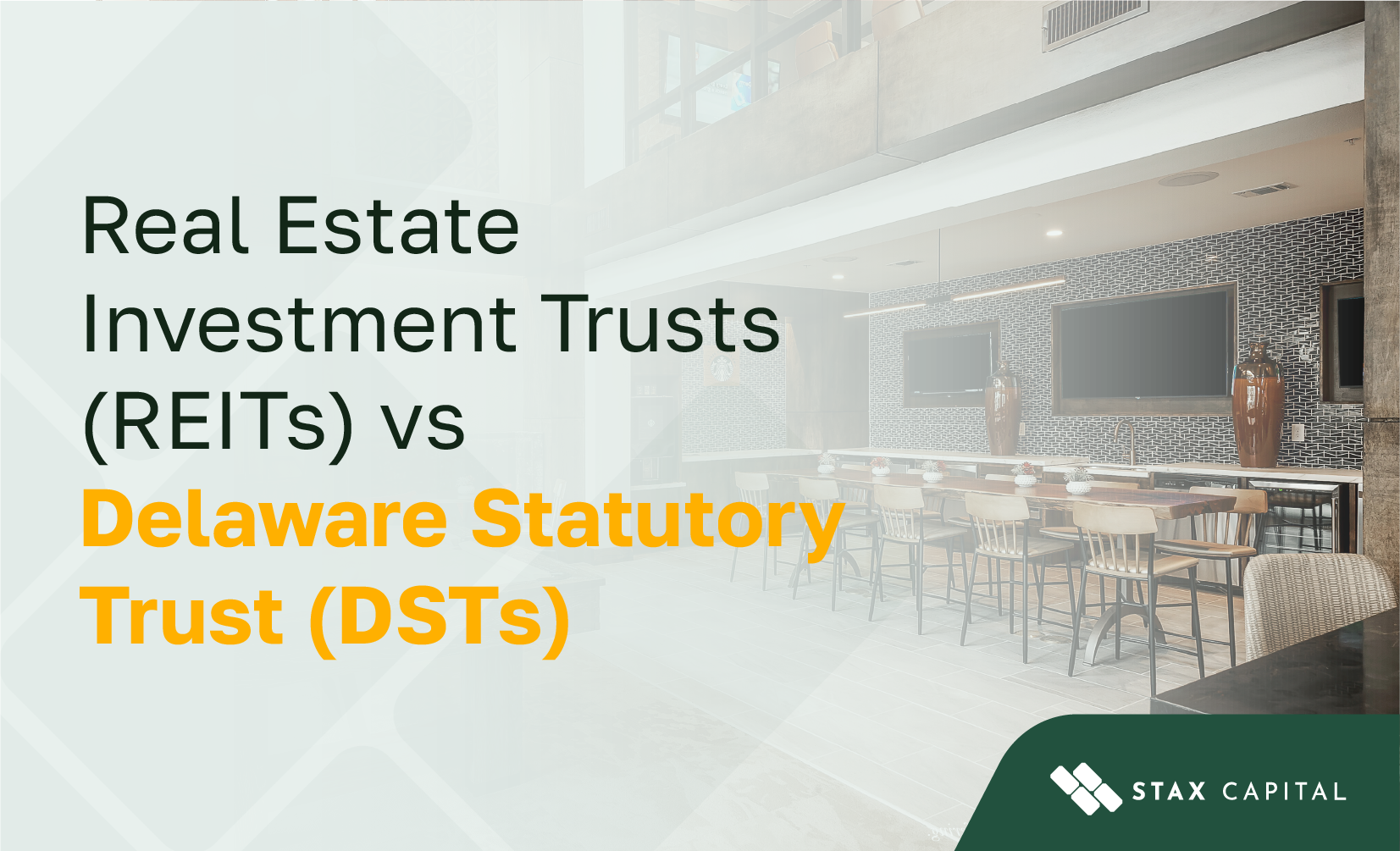10 Real Estate Investment Strategies to Maximize Your Returns

Real Estate Investment
Real estate goes beyond buying and selling—it’s about implementing strategies tailored to your financial goals. With the right approach, you can optimize your investment potential while navigating inherent risks. From flipping homes to diversifying your portfolio, there are plenty of ways to maximize your real estate investment profits.
In this blog, we’ll walk you through 10 strategies that can take your investment game to new heights.
Strategies to Maximize Your Real Estate Investment Gains
Buy and Hold Strategy
The "Buy and Hold" strategy focuses on purchasing properties and holding onto them for the long term, typically 10 years or more. This approach allows investors to benefit from potential property appreciation while generating rental income. However, market conditions, tenant performance, and unexpected costs can impact outcomes.
Pros
- Potential Wealth Building: Properties may increase in value over time, offering opportunities for profit upon sale. However, returns are not guaranteed and depend on market conditions.
- Income Opportunity: Renting the property may generate income, but cash flow can vary based on tenant reliability and maintenance needs.
- Portfolio Diversification: Real estate can diversify an investment portfolio, though it carries specific risks like property depreciation.
Cons
- Illiquid Asset: Unlike stocks, real estate takes time to sell. If you need to liquidate quickly, it could be difficult to find a buyer or achieve the price you expect.
- Active Management: Owning a rental property requires ongoing effort. You’ll need to manage tenants, maintain the property, and handle any issues that arise, such as damage, vacancies, or late rent payments.
- Risks of Ownership: The property can be subject to unexpected costs—repairs, vacancies, or tenants failing to pay rent—which could impact your cash flow and returns.
Flipping Properties for Profit
Flipping properties involves buying off-plan or pre-construction real estate and selling it soon after the construction is complete. The strategy focuses on purchasing properties at a lower price during the planning or building stage. Once construction is finished and the property’s market value rises, the investor sells it to turn a profit.
Pros
- High Return Potential: The main attraction of flipping is the potential for large profits. If the market is favorable and the property value increases significantly, you could sell for much more than what you paid.
- Lower Purchase Price: Buying before construction is completed often means you can purchase at a discounted price. Once the property is finished, its value can rise, creating a significant profit margin when you sell.
- Quick Turnaround: Unlike other real estate strategies, flipping properties offer the potential for a fast return on investment. If everything goes as planned, you could see profits within a short period.
Cons
- Construction Risks: Flipping properties depend on construction timelines and budgets. Delays or cost overruns can eat into your profits or cause the project to take longer than expected, reducing your return.
- Market Fluctuations: The property market can change unexpectedly. If the market weakens or demand decreases by the time the property is completed, you may not be able to sell it for the price you anticipated.
- High Initial Investment: Flipping properties requires a substantial upfront investment. You’ll need enough capital to purchase the property and potentially cover construction costs, making this strategy riskier for those without significant financial resources.
House Hacking
House hacking is a smart strategy where an investor buys a multi-unit property, lives in one unit, and rents out the others. This allows you to generate rental income while reducing your own housing costs. By renting out the extra units, you can offset your mortgage and even create additional cash flow.
Pros
- Reduced Housing Costs: By renting out the other units, you can cover your mortgage and other property expenses. This means you can live for less, freeing up money for other investments or expenses.
- Cash Flow Potential: Not only will your housing costs decrease, but you may also start earning extra income from the tenants' rent. This can boost your overall financial situation.
- Lower Entry Costs: House hacking is a great way for first-time investors to enter the real estate market. With lower down payment options and the ability to use FHA or VA loans, it's easier to get started.
Cons
- Active Management: Owning a multi-unit property means you'll need to manage tenants, repairs, and maintenance. It's not a hands-off investment—you'll be responsible for keeping everything running smoothly.
- Living with Tenants: While you save on housing costs, living so close to your tenants can create challenges. It may not be ideal for everyone, especially if you value privacy or quiet.
- Market Limitations: The success of this strategy depends on high rental demand and suitable property pricing, which may vary by market.
Real Estate Investment Trusts (REITs)
Real Estate Investment Trusts (REITs) offer an easy way to invest in real estate without the need to buy or manage properties directly. REITs pool money from multiple investors to purchase and manage a portfolio of income-generating real estate, such as office buildings, apartment complexes, or storage facilities. Many REITs are publicly traded, meaning you can buy and sell shares just like stocks.
Pros
- Diversification: REITs give you exposure to a variety of real estate properties, helping to spread your investment risk across different sectors. This is a great way to build a diversified portfolio without owning multiple properties.
- High Liquidity: Since many REITs are traded on stock exchanges, you can easily buy and sell shares, making it a more liquid investment compared to direct property ownership.
- Potential Income from Dividends: REITs often pay high dividends, offering a consistent stream of income from rental payments made by the properties in their portfolios. Although, investors should consider fees and management expenses, which may impact overall returns.
Cons
- Market Fluctuations: The value of REITs can go up or down depending on market conditions. If the stock market drops, so might the value of your investment.
- No Guaranteed Dividends: While REITs are known for paying regular dividends, they are not guaranteed. If the real estate market struggles, dividend payouts could be reduced or suspended.
- Management Fees: REITs typically charge management fees, which can eat into your profits. These fees, along with other operational expenses, can reduce your overall returns.
Real Estate Crowdfunding
Real estate crowdfunding allows investors to pool their money through an online platform to fund real estate projects. This can include anything from new developments to renovations. In return, investors receive a share of the profits based on the project's success.
Pros
- Potential for Attractive Returns: Crowdfunding offers the chance for high returns, especially if the project performs well. With the right investments, you could see significant profits.
- Diversified Portfolio: Crowdfunding platforms typically feature a range of projects. You can invest in multiple projects at once, spreading your risk and creating a diverse real estate portfolio./
- Lower Minimum Investment: One of the biggest benefits of crowdfunding is the ability to invest with relatively low amounts. This opens the door for more investors to participate in real estate without needing large sums of capital.
Cons
- No Guaranteed Returns: As with any investment, there's no guarantee that you'll make money. If the project doesn't succeed or the market changes, your investment could lose value.
- Limited Control: Investors typically don't have a say in how the property is managed or the project is run. This lack of control can be frustrating, especially if the project faces challenges that impact its success.
- Market Risk: Crowdfunded real estate investments are subject to market risks. If the real estate market or specific project faces downturns, it can affect your returns or even lead to losses.
Real Estate Wholesaling
Real estate wholesaling is a quick and flexible investment strategy where you act as the middleman between property sellers and buyers. The process involves finding distressed properties, securing them under contract, and then selling the contract to a buyer at a higher price. You don’t take ownership of the property, but you profit from the difference between the contract price and the buyer’s purchase price.
Note: Wholesaling requires extensive market knowledge and negotiation skills. Regulatory compliance varies by jurisdiction.
Pros
- Quick Profits: Wholesaling offers the potential to make money fast, often within weeks or months, without needing to own or renovate properties.
- Low Investment: Since you’re not buying the property outright, wholesaling requires little to no upfront capital, making it an accessible option for new investors.
- Flexibility: This strategy doesn’t tie you to a specific location or long-term commitment. You can work remotely and adapt your approach to fit your schedule.
Cons
- Finding Deals is Hard: Locating distressed properties at the right price can be challenging and requires time, effort, and market knowledge.
- Negotiation Skills are a Must: To succeed, you need strong negotiation abilities to secure contracts at a price low enough to turn a profit.
- Relationship Building: Developing a network of reliable buyers and sellers is crucial, and it can take time to establish trust and credibility.
Short-Term Rentals
Investing in short-term vacation rentals is a popular way to boost your real estate profits. Platforms like Airbnb make it easy to list properties in high-demand areas, especially tourist hotspots. Thanks to premium nightly rates, short-term rentals offer the potential for higher returns compared to traditional long-term leases. However, they come with unique challenges that require your attention.
Pros
- High-Income Potential: Short-term rentals often generate more income than long-term leases, especially in tourist-heavy areas. However, income is subject to seasonal demand and local market dynamics, which can impact cash flow consistency.
- Flexibility: You can choose when to rent out your property, making it easy to use for personal vacations or other needs.
- Market Reach: Platforms like Airbnb or Vrbo connect you to a global audience, increasing your chances of booking your property.
Cons
- Active Management Required: Managing a short-term rental involves frequent cleaning, maintaining a high standard for guest experiences, and being responsive to inquiries or issues.
- Local Regulations: Some areas have strict rules or additional taxes for vacation rentals. It’s essential to understand and comply with these to avoid fines or other legal issues.
- Seasonal Fluctuations: Income from short-term rentals can vary depending on the time of year or local events, making your cash flow less predictable.
Tax Lien and Tax Deed Investing
Tax lien and tax deed investing are unique ways to profit from delinquent property taxes. When property owners fail to pay their taxes, local governments issue tax liens or deeds, which investors can buy at auctions. With tax liens, you earn interest when the owner repays their debt. If they don’t, you could end up owning the property. Tax deeds, on the other hand, grant direct ownership of the property once purchased.
Note: Tax lien and tax deed investing require extensive due diligence to avoid properties with unresolved legal or structural issues.
Pros
- High Returns: Tax liens often come with high interest rates, offering solid potential returns on your investment.
- Affordable Entry: You can start investing with relatively small amounts, especially when purchasing liens.
- Property Acquisition: If the owner doesn’t pay, you may acquire the property at a fraction of its market value.
Cons
- Research Intensive: Identifying valuable liens or deeds requires thorough research to avoid purchasing distressed or low-value properties.
- Risk of Property Issues: Properties tied to liens may come with structural issues or legal complications.
- Time-Consuming: The redemption period for tax liens can vary, meaning your investment may not yield immediate returns.
Multifamily Property Investing
Multifamily property investing involves owning properties with multiple rental units, like duplexes, triplexes, or apartment buildings. Each unit provides rental income, helping you diversify your cash flow. Even if one unit is vacant, the others keep generating revenue, making this a resilient investment option. Plus, multifamily properties tend to appreciate over time, boosting their long-term value.
Note: Investors should evaluate local market conditions to ensure tenant demand and rental price sustainability.
Pros
- Potential for Diversified Cash Flow: Multiple units provide cash flow, even during vacancies.
- Economies of Scale: Managing one multifamily property is often simpler and cheaper than juggling several single-family homes.
- Long-Term Value: These properties tend to appreciate, growing your investment over time.
Cons
- Higher Upfront Costs: Multifamily properties demand a bigger initial investment than single-family homes.
Management Demands: More units mean more tenants and more work—maintenance, repairs, and tenant relations. A property manager can ease the load but at a cost.
Market Risks: Local market changes can affect rent prices and occupancy, influencing your bottom line.
BRRR: Buy, Rehab, Rent, Refinance, Repeat
The BRRR strategy is a proven way to grow your real estate portfolio. First, you buy a distressed property at a low price. Then, you renovate it to boost its value. Next, you rent it out, creating an income stream. Once the property’s value has risen, you refinance it to pull out the equity. Finally, you use that equity to purchase another property and repeat the process. This strategy combines the benefits of flipping and long-term rentals, making it a powerful way to build wealth over time.
Note: Renovation costs and rental income projections must be carefully assessed to avoid financial losses.
Pros
- Portfolio Growth: Allows you to acquire multiple properties using the same initial capital.
- Passive Income: Earn rental income while the properties appreciate in value.
- Equity Gains: Renovations can significantly boost the property’s value, enabling higher refinancing amounts.
Cons
- Complex Process: Identifying good deals, managing renovations, finding tenants, and refinancing require time, effort, and expertise.
- Upfront Risks: Miscalculating renovation costs or rental income potential can impact profitability.
- Market Dependency: Success relies on the availability of distressed properties and favorable refinancing terms.
Ready to Maximize Your Returns?
Now that you’ve explored these strategies, it’s time to put them into action. Investing in real estate can feel overwhelming, but the rewards are worth the effort. Start small, stay informed, and focus on long-term gains.
Have questions? Let’s connect and create a customized investment plan to set you up for success.



Share: